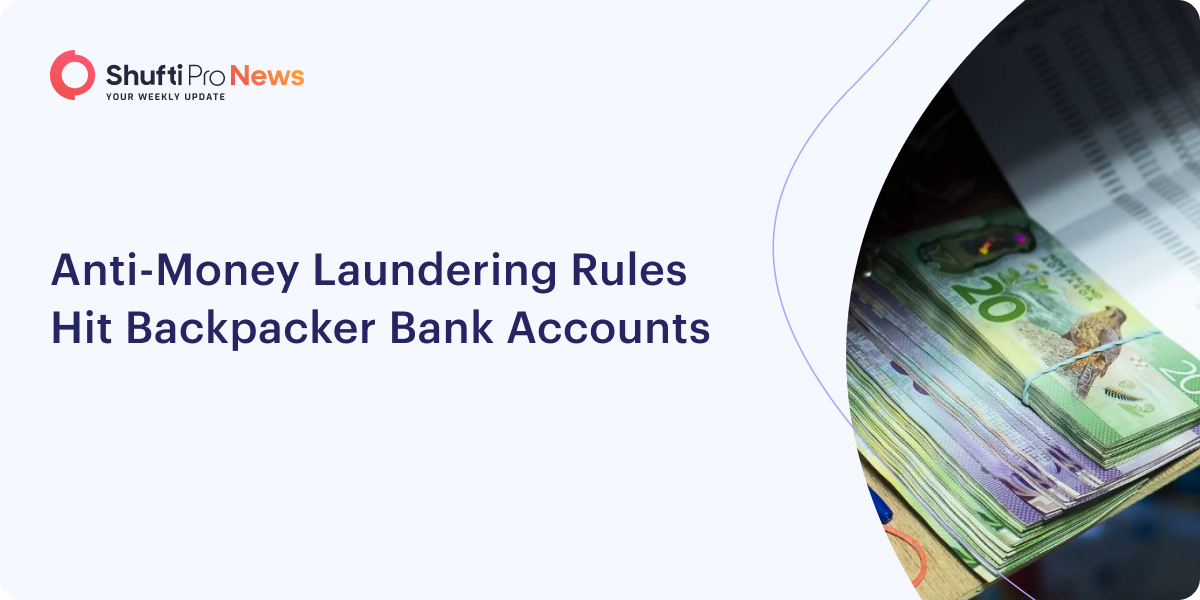Anti-Money Laundering Rules Hit Backpacker Bank Accounts

Working holiday visa holders have been reported to have difficulty obtaining bank accounts due to anti-money laundering provisions in the Act.
Laurine and Anthony, a young French couple, arrived in New Zealand on working holiday visas looking for work in the agriculture, cafes, and tourist sector. Obtaining a bank account was the first step in securing employment but not in New Zealand. However, for travellers staying in temporary accommodation, such as an Airbnb or hostel, you cannot open a bank account due to not having a fixed address.
“We asked at a few banks in Queen Street, but they wanted proof of address before we could open an account, and they wouldn’t accept a hostel address,” Anthony said, “We have friends who say it was easier last year, but banks have tightened up recently.”
Anthony and Laurine aren’t the only ones affected. Newly-arrived visa holders have been posting frequently on Facebook’s backpacker forums seeking tips about getting a bank account lately. “Everyone’s asking, ‘Where should I go? Which is the best bank at the moment?’”
Government officials claim that more backpackers are needed. Michael Wood, the Minister of Immigration, announced legislative changes in April to improve the conditions for working holiday visa holders. His press release was titled: ‘Government delivers a massive boost to (the) working holiday workforce’. “The Government recognises the crucial role working holiday visas play in the New Zealand economy,” Wood said. “We are doing everything we can to make New Zealand an attractive place to visit and work in an internationally competitive labour market,” he added to his statement.
Fortunately, the government can take one action, but it is unrelated to immigration. Money laundering laws should be reformed as quickly as possible. The anti-money laundering regulations are catching Laurine, Anthony and hundreds of other work holiday visa holders. The program was initially designed to deter criminals in 2009; however, it’s had a considerable impact on backpackers and homeless people, couch surfers, and formerly incarcerated people.
Banks claim that they are limited in their options. “Proof of address is a requirement of the Anti-Money Laundering and Countering Financing of Terrorism Act 2009,” a BNZ spokesperson said. “We appreciate it may be challenging for working holiday visa holders who have recently arrived in New Zealand to provide proof of address, but all banks in New Zealand must comply with the law and obtain and verify this information,” continued, “Where banks have some discretion is in the type of proof required. For example, for seasonal worker requests, BNZ may accept a letter from an employer as proof of address and customers living in temporary accommodation can present a letter from their accommodation provider.”
Kiwibank confirms that the eligibility requirements have been tightened this year. “Until late 2022, we did accept campground or hostel address verification,” says external communications manager Leah Chamberlin-Gunn. “However, we made a risk-based decision that we would no longer accept this. We also noticed that fraudulent documents were being used,” he further added, “We do our best to balance anti-money laundering regulations and our own internal risk appetite while making it possible for Working Holiday Visa holders to gain access to the New Zealand banking system.”
According to ANZ Bank’s website, it will accept hostel and hotel addresses. Backpackers reported similar experiences with ANZ and other banks. Interestingly, address verification seems neither useful nor necessary. The laws are not in place in many jurisdictions, and no one is under the impression that such laws would prevent a determined money laundering. However, there is no timeframe for bringing about the much-needed changes.
Suggested Read:
BERMUDA MONETARY AUTHORITY TIGHTENS AML CONTROL AS THREAT OF MONEY LAUNDERING INCREASES
BERMUDA MONETARY AUTHORITY TIGHTENS AML CONTROL AS THREAT OF MONEY LAUNDERING INCREASES

 Explore Now
Explore Now













